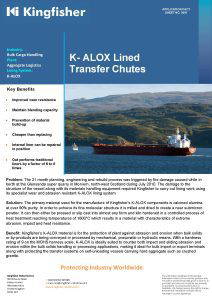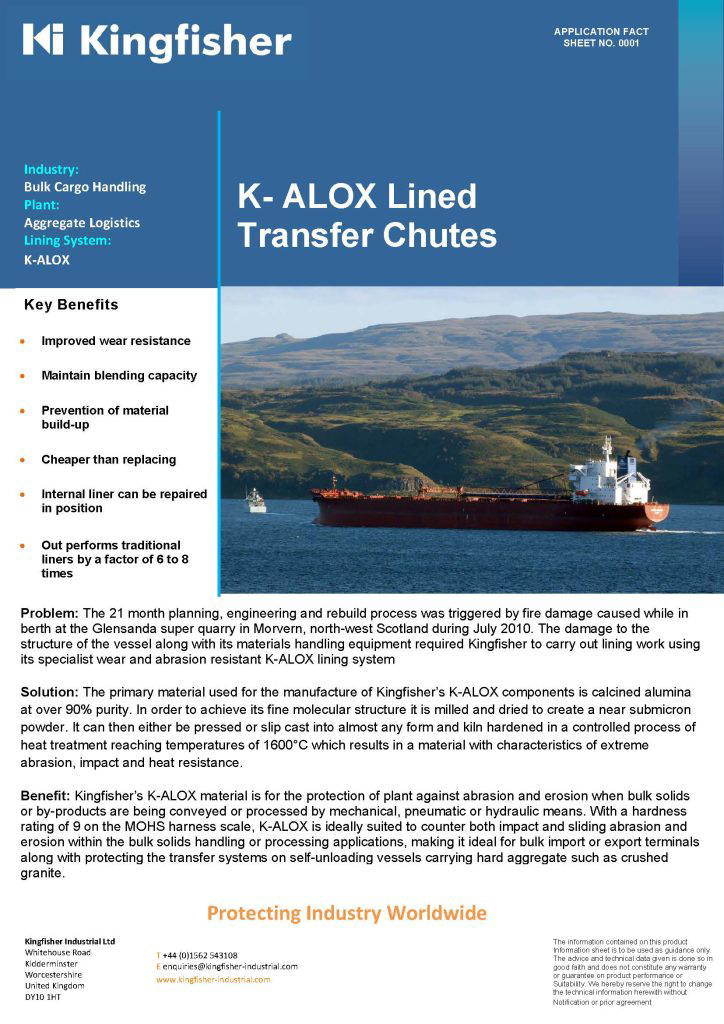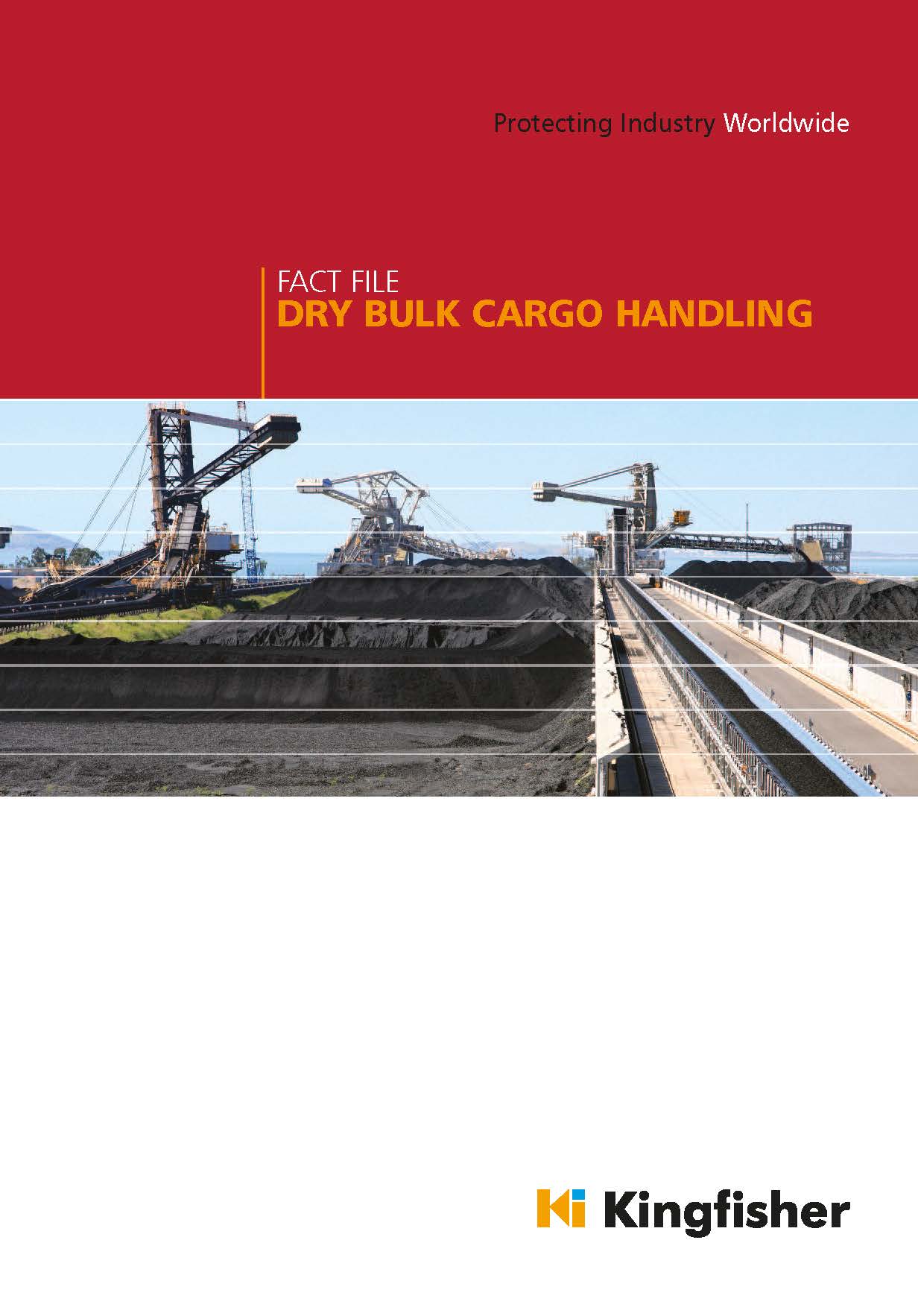Wear Resistant Systems for Bulk Cargo Handling
Maintain plant efficiency and integrity with Kingfisher Industrial
Plant degradation – we understand the pain
The movement of traditional and newly sought solid bulk materials around the world is on the incline. With these movements being dependant on infrastructure to transport and handle the increasing tonnage, then investment in new and improved facilities is an ongoing activity. Many factors have to be considered when planning and budgeting for the type of facilities required for handling and storing a whole host of bulk materials that will give the owners and operators the flexibility of being able to accommodate diverse types of bulk solids. Issues such as tonnages, contamination, degradation and pollution to mention a few, are the factors which drive the amount or type of investments being made and considered in today’s market place.

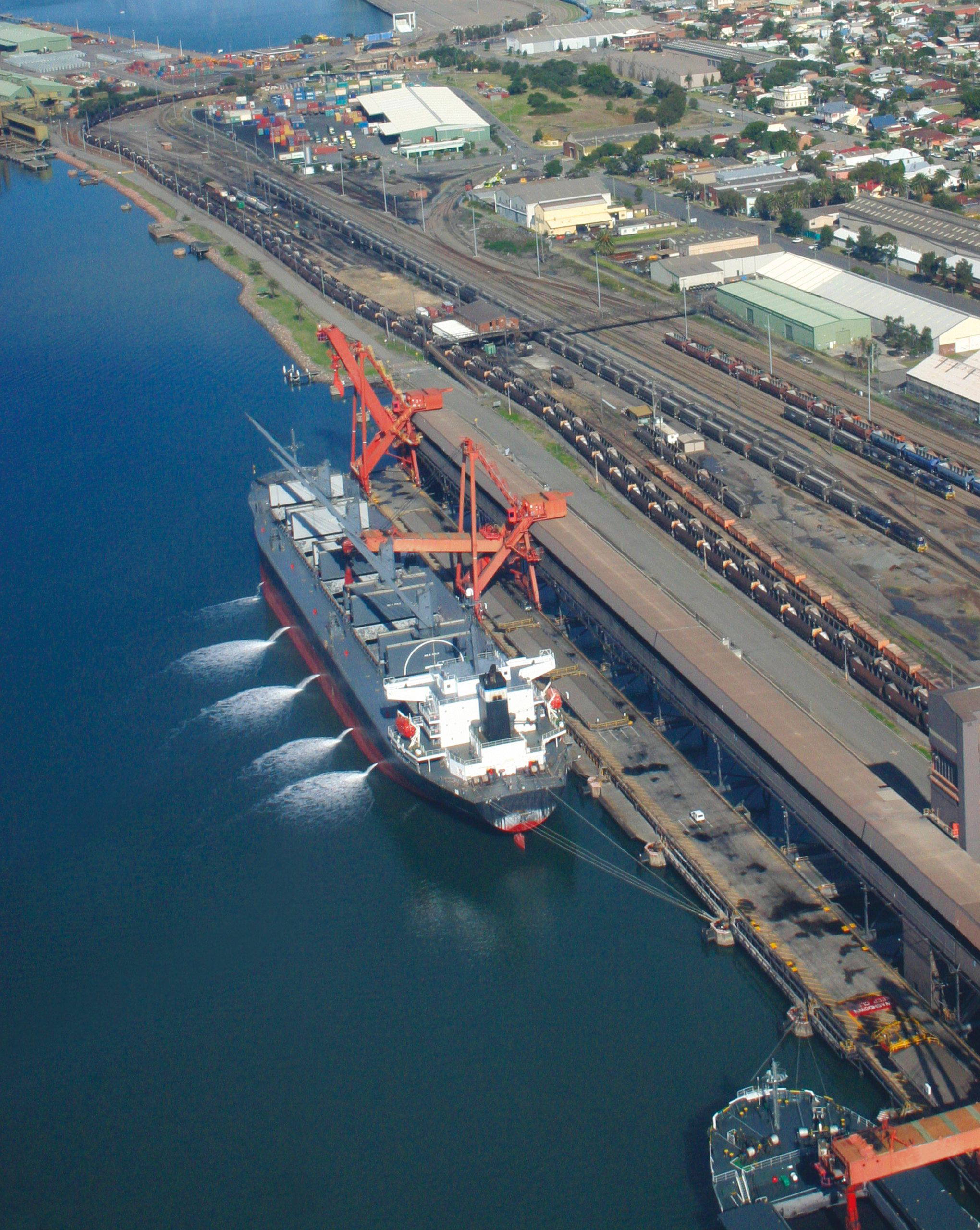
Protection against abrasion and erosion
The one aspect of handling materials that doesn’t change is the negative effect minerals or other bulk solids has on capital equipment used to convey, store or discharge it. From the first day the equipment goes into service then its life expectancy is being reduced by the effects of wear due to the volumes of materials being handled. Minerals such as coal, iron ore and pellets are traditionally seen as abrasive materials and are handled in quantities of millions of tonnes per year by loading facilities, shipping companies and import terminals alike. All suffer from the significant amount of wear that takes place during this process, therefore it is imperative to protect against these factors.

The Solution Providers
Using a combination of ceramic, metallic and polymer lining systems, Kingfisher have had overwhelming success in protecting equipment and extending the service life of plant that without intervention would have been deemed for the scrap yard. In many instances, the benefits of protecting your plant are twofold as it also allows a greater volume of material to be loaded or discharged due to the characteristics of some of the lining systems provided, thus resulting in reduced demurrage costs for port side facilities and limiting the duration self unloading vessel spend discharging.
Protection over replacement
See below an example how Kingfisher Industrial can help with Wear Protection within the Bulk Cargo Handling Sector
Problem
The 21 month planning, engineering and rebuild process was triggered by fire damage caused while in berth at the Glensanda super quarry in Morvern, north-west Scotland during July 2010. The damage to the structure of the vessel along with its materials handling equipment required Kingfisher to carry out lining work using its specialist wear and abrasion resistant K-ALOX lining system.
Solution
The primary material used for the manufacture of Kingfisher’s K-ALOX components is calcined alumina at over 90% purity. In order to achieve its fine molecular structure it is milled and dried to create a near submicron powder. It can then either be pressed or slip cast into almost any form and kiln hardened in a controlled process of heat treatment reaching temperatures of 1600°C which results in a material with characteristics of extreme abrasion, impact and heat resistance.
Benefit
Kingfisher’s K-ALOX material is for the protection of plant against abrasion and erosion when bulk solids or by-products are being conveyed or processed by mechanical, pneumatic or hydraulic means. With a hardness rating of 9 on the MOHS harness scale, K-ALOX is ideally suited to counter both impact and sliding abrasion and erosion within the bulk solids handling or processing applications, making it ideal for bulk import or export terminals along with protecting the transfer systems on self-unloading vessels carrying hard aggregate such as crushed granite.
Key Benefits
Improved Wear Resistance
Maintain blending capacity
Prevention of material build-up
Cheaper than replacing
Internal liner can be repaired in position
Out performs traditional liners by a factor of 6-8 times
more examples
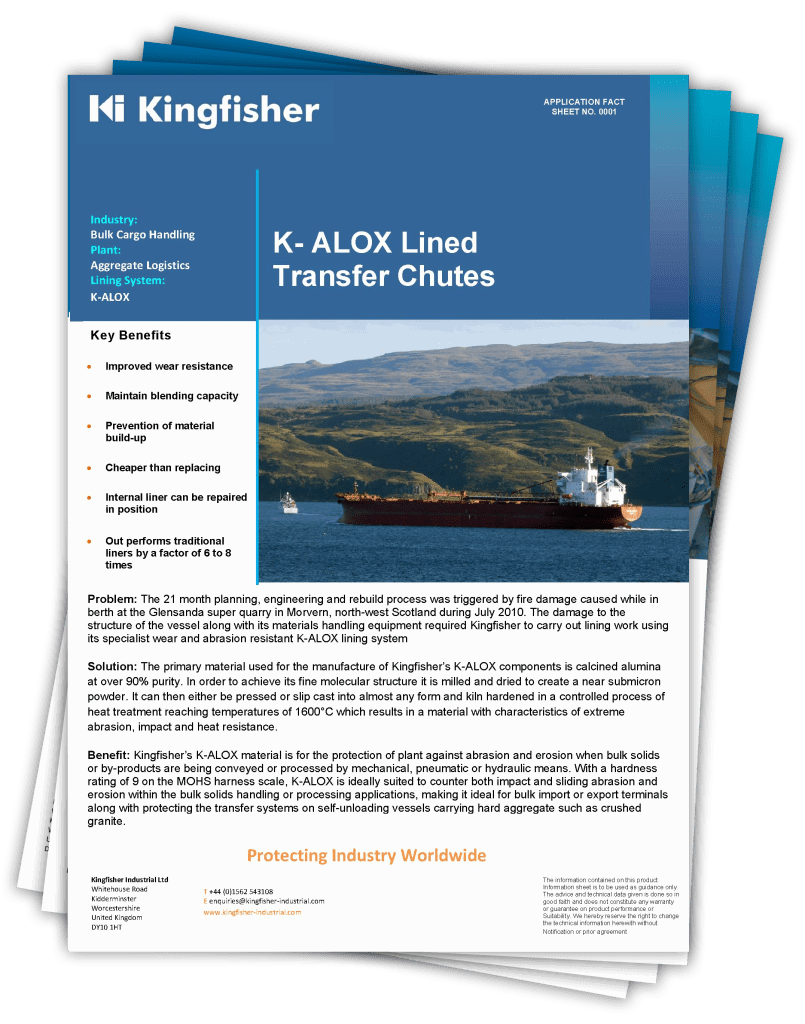
View more case studies
If you’d like to see more case studies showing how we Kingfisher help solve problems and find solutions within the Bulk Cargo industry, please register your interest and we will get in touch.

Asset integrity experts
In identifying all relevant wear criteria and referencing a huge portfolio of wear protection materials and techniques, Kingfisher is able to make sound recommendations supported by firm performance guarantees. This option reduces the inherent risk of uneconomic investment as the costs of replacement can sometimes outweigh the initial CAPEX cost.
For more information about how Kingfisher Industrial assists the global Dry Bulk Cargo Handling industry, have a read through our industry specific brochure and get in touch.

Wear Protection
Kingfisher offer a full range of ceramic, metallic and polymer lining systems. With our experience protecting process plant and equipment in many industrial applications and the performance knowledge of the materials we provide we offer a totally unbiased solution for each individual application.
Ceramic
Metallic
Polymer

